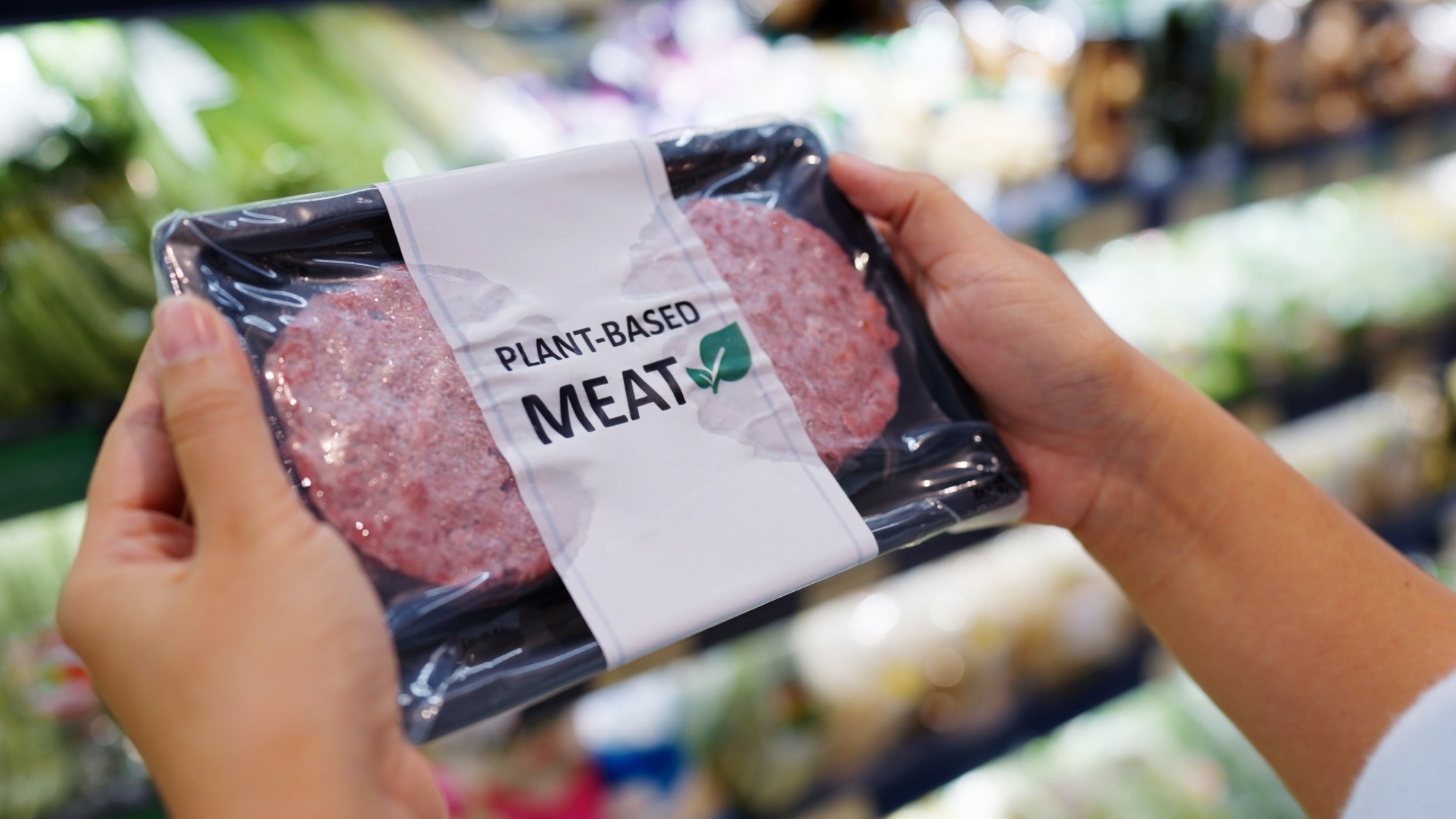A thorough investigation of plant-based dietary nutritional and environmental benefits is essential. Assessments of sustainable healthy diets typically do not consider composite diets, even though dietary consumption is mostly in composite forms.
 Study: Transitioning to Plant-based Diets: Exploring the Environmental Nutrition Performance of 24 Composite Diet Scenarios. Image Credit: Chay_Tee/Shutterstock.com
Study: Transitioning to Plant-based Diets: Exploring the Environmental Nutrition Performance of 24 Composite Diet Scenarios. Image Credit: Chay_Tee/Shutterstock.com

 *Important notice: Research Square publishes preliminary scientific reports that are not peer-reviewed and, therefore, should not be regarded as conclusive, guide clinical practice/health-related behavior, or treated as established information.
*Important notice: Research Square publishes preliminary scientific reports that are not peer-reviewed and, therefore, should not be regarded as conclusive, guide clinical practice/health-related behavior, or treated as established information.
Background
Plant-based diets (PBDs) are gaining popularity due to their established environmental and human health benefits. PBDs contain zero or small quantities of animal products.
According to the World Health Organization (WHO), PBDs contain vegetarian diets, such as ovo-vegetarian, pesco-vegetarian (pescatarian), and vegan. They mainly have plant materials, e.g., legumes, nuts, grains, seeds, fruits, vegetables, and so on.
Minimal and ultra-processed forms may be included in PBDs. The greater the processing, the more nutritional content and environmental impact are compromised.
The welcome shift toward plant-based diets has been necessitated mainly by climate action strategies. Global food production represents about 17–32% of global emissions, of which meat production alone contributes more than 50%.
Besides the impact on climate, another advantage of PBDs is reducing the risk related to non-communicable chronic diseases (NCDs), such as type 2 diabetes and cardiovascular diseases (CVDs).
About the Study
Previous research established the Food4HealthyLife calculator, which outlined optimal and feasible diet scenarios for expected higher life expectancy.
The current study extends the data in the Food4HealthyLife calculator by identifying optimal scenarios (dominated by plant-based foods) as the best diet choices for achieving maximum life expectancy. Owing to geographic discrepancies in the food system, the recommendation was to follow feasible diet scenarios instead of the optimal scenario.
As foods are usually consumed in composite forms, paying attention to the sustainability performance of composite diets was the key focus of this study. Using the Food4HealthyLife calculator, model composite diet scenarios between the current and optimal diet regimes were developed while focussing on partially replacing animal-based meats with plant-based protein sources. The Food Compass Scoring system was used to rate each model's diet.
Key Findings
The first diet scenario was attributed the lowest Food Compass Score (65.46) owing to its composition. The first diet comprises 100% animal-based proteins, the highest proportion of sugar-sweetened beverages, and the lowest quantities of fruits, nuts, vegetables, whole grains, legumes, and seafood. Such a composition should be nutritionally discouraged.
The Food Compass Scores increased when incremental proportions of the healthy food components were introduced. Unsurprisingly, the optimal diet received the highest score.
Despite the higher score, a decline in minerals and vitamins was noted, which could be driven by replacing animal-based meats with legumes. The variation in the diet ranking outcomes in this study was consistent with those reported in prior research.
A 7.0–7.6% initial increase in the environmental impact was noted in diet scenarios with healthy foods added to the current. The effects were far more (55%) when the diet comprised 10% legumes and 0.11%, 2.81%, and 0.28% of red, white, and processed meats, respectively.
The lower environmental impact estimates from the current diet scenario suggest that healthier options may exhibit greater ecological damage than unhealthier options. This depends on the type and quantities of food being consumed.
The broad conclusion is that although plant-based foods may not always be superior to animal-based foods, reduction in animal-based foods can be good for the environment in almost all scenarios.
In the environmental impact evaluation factoring in the total human health damage, the current diet ranked higher than six, and the optimal diet scenario ranked lower than eight.
The environmental damage in the optimal diet scenario was worse than in the scenario which had partially replaced animal-based meat with legumes.
The diet scenario that achieved overall higher environmental and nutritional benefits comprised 10% legumes, 0.28% processed meats, 0.11% red meat, and 2.81% white meat. This proves the absence of a correlation between environmental emissions of diets and nutritional quality.
Conclusion
The current study found no correlation between nutritional quality and the environmental impacts of foods. Therefore, it is advisable to assess the quality of diets based on their nutritional and environmental benefits. The partial replacement of animal-based meats led to lower environmental impacts.
Interestingly, adding healthy foods to a diet rich in unhealthy foods does not necessarily revert environmental damage.
Simultaneous increases and decreases in healthy and unhealthy foods, respectively, were identified as the best measure for health and the environment.

 *Important notice: Research Square publishes preliminary scientific reports that are not peer-reviewed and, therefore, should not be regarded as conclusive, guide clinical practice/health-related behavior, or treated as established information.
*Important notice: Research Square publishes preliminary scientific reports that are not peer-reviewed and, therefore, should not be regarded as conclusive, guide clinical practice/health-related behavior, or treated as established information.